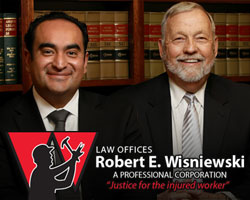You’ve got your website running and you know that it’s getting some visitors. But is it having any real impact? In today’s digital environment, there are 2 kinds of websites—those that are there because someone told the boss they need one and those that actually work positively for the business. The professional term for it is “lead optimization for lawyers” and it’s shorthand for turning website visits into actual clients.
A lot of websites, especially ones that have to reach a targeted audience the way law firms do, fail at the most basic marketing level—they don’t know the real purpose for their website. Or at least they fail to act like it. Your purpose in having a website is almost certainly not the same as those who run the websites you regularly visit for news and information. Those sites are geared toward a mass audience and really don’t have to think about why people are visiting their site.
You’ve got a website that has a specific purpose—to find the people who need, or are likely to need, a lawyer at some point. And people who will fill out a contact form on your website. This a very small percentage of the people who actually make up your traffic, but they’re the only ones that really matter. You should structure your entire website with the goal of drawing them further into your orbit.
With that in mind, here are tips for lead optimization that will work:
- Ensure that each page has a clear call-to-action (CTA) expressing what you want them to do. That something should be to either fill out a “Contact Us” form or to sign up for something free, thereby giving you their email address. The CTA and the action itself should all be above the fold—that is, to not require the reader to scroll their browser after they land on the page.
- A directly related point is that you’ll need something free to offer. Ideally, that would be an e-mail newsletter touching on topics relevant to your practice. You can highlight new blog posts or podcasts that have been put out recently. You’re keeping your firm’s name at the top of the reader’s mind so when the need for legal counsel arises, they’ll think of you.
- Make sure your site is technically sound and runs fast. Nothing loses traffic more than a website that takes too long to load.
- Set up analytics to go beyond the vanity metrics—the raw numbers of how many people visit your site—and into how many of them take the steps you want them to take. How many of them visit your “Contact Us” page, even if they don’t fill out the form? How many click on the phone number from their desktop? Analytics can tell you this. If you don’t like the results, you can change your website accordingly.






